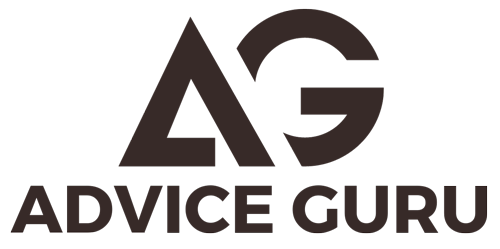A Guide to Comparing Business Insurance Options

Do you own a business? Are you looking for the perfect insurance coverage but feeling overwhelmed by the multitude of options available? Look no further! In this comprehensive guide, we will walk you through everything you need to know about comparing business insurance options and finding the ideal coverage for your needs. If you start searching the options below, you can find the best deals for you. Navigating the World of Insurance Insurance can be a complex and confusing world, but with a little knowledge, you can navigate it with confidence. One of the first steps to understanding insurance is exploring the various types of coverage available. Exploring the Various Types of Insurance Coverage When it comes to business insurance, there are several types of coverage you should be familiar with. These include: General Liability Insurance: Protects against third-party claims for bodily injury, property damage, and personal injury. Professional Liability Insurance: Often referred to as Errors and Omissions insurance, this coverage protects against claims of negligence or professional mistakes. Property Insurance: Covers damage or loss of physical assets, such as buildings, equipment, or inventory. Business Interruption Insurance: Provides coverage for lost income and additional expenses in the event of a covered interruption to your business operations. These are just a few examples, and the types of insurance coverage you need will depend on the nature of your business. It’s important to carefully evaluate your risks and choose the right coverage accordingly. Key Factors to Consider When Comparing Business Insurance Plans As you compare different business insurance plans, keep in mind the following key factors: Coverage Limits: Ensure that the insurance policy offers adequate coverage limits for your specific needs. Policy Exclusions: Pay attention to any exclusions or limitations that may affect your coverage. Deductibles: Understand how deductibles work and consider how they may impact your premiums and out-of-pocket expenses in the event of a claim. Premiums: Compare premium rates from different insurers to find the most competitive pricing. Reputation and Financial Stability: Research the insurer’s reputation and financial strength to ensure they are reliable and capable of paying claims. By considering these factors, you can make a more informed decision and find the right insurance plan for your business. However, it’s important to note that insurance coverage is not the only consideration when it comes to protecting your business. Another crucial aspect to consider is risk management. Risk management involves identifying potential risks and implementing strategies to mitigate them. This can include implementing safety protocols, conducting regular risk assessments, and having a contingency plan in place. Additionally, it’s worth mentioning that insurance policies can be complex documents filled with legal jargon. It’s essential to carefully read and understand the terms and conditions of any insurance policy before signing on the dotted line. If you have any questions or concerns, don’t hesitate to reach out to an insurance professional who can provide guidance and clarification. Maximizing Savings: Unpacking Discounts and Bundles When searching for business insurance, finding ways to save money is always a plus. Many insurers offer discounts and bundle options that can help you cut costs without sacrificing coverage. Some common discounts to look out for include: Multi-policy discounts: Insuring multiple policies with the same insurer can often lead to significant savings. Claims-free discounts: If your business has a history of being claim-free, you may qualify for lower premiums. Safety and security discounts: Installing safety features or security systems in your business premises can make you eligible for discounts. Bundling different types of coverage can also be cost-effective. For example, combining property insurance with general liability insurance under a business owner’s policy (BOP) can result in significant savings. Decoding Deductibles and Premiums in Insurance When comparing insurance options, it’s essential to understand how deductibles and premiums work and how they affect your overall coverage and costs. Understanding How Deductibles Affect Your Premiums A deductible is the amount you must pay out-of-pocket before your insurance coverage kicks in. When choosing a deductible, consider how it will impact your premiums. A higher deductible generally results in lower premiums, as you are assuming more risk. On the other hand, opting for a lower deductible will increase your premiums but may provide more financial security in the event of a claim. After Choosing Your Policy: What Comes Next? Once you’ve compared insurance policies and selected the right one for your business, there are a few important steps to take. First, review the policy thoroughly to ensure it accurately reflects the coverage you require. If you have any questions or concerns, reach out to your insurance agent or provider for clarification. Next, it’s crucial to regularly review and update your insurance policy. As your business evolves, your coverage needs may change. Keeping your policy up-to-date ensures you are adequately protected. Tips for Making an Informed Decision When Choosing an Insurance Policy Assess your risks: Understand the specific risks and exposures your business faces to determine the coverage you need. Shop around: Compare quotes and coverage options from multiple insurers to find the best fit for your business. Read the fine print: Carefully review the policy terms and conditions, paying attention to exclusions, limitations, and coverage details. Seek professional advice: Consider consulting an insurance broker or agent who specializes in commercial insurance to guide you in making the right decision. Remember, rushing into a decision can lead to inadequate coverage or overspending. Take your time, do your research, and make a well-informed choice. The Importance of Reviewing Your Policy Regularly Your business is dynamic, and your insurance needs may change over time. Regularly reviewing your policy ensures that it remains up-to-date and aligned with your evolving risk profile. When reviewing your policy, ask yourself the following questions: Has your business expanded or downsized? Are your coverage limits still adequate? Have you introduced new products or services? Do you need additional coverage? Have you moved locations? Are you still covered in your new premises? By regularly reviewing your policy, you can make necessary adjustments and


